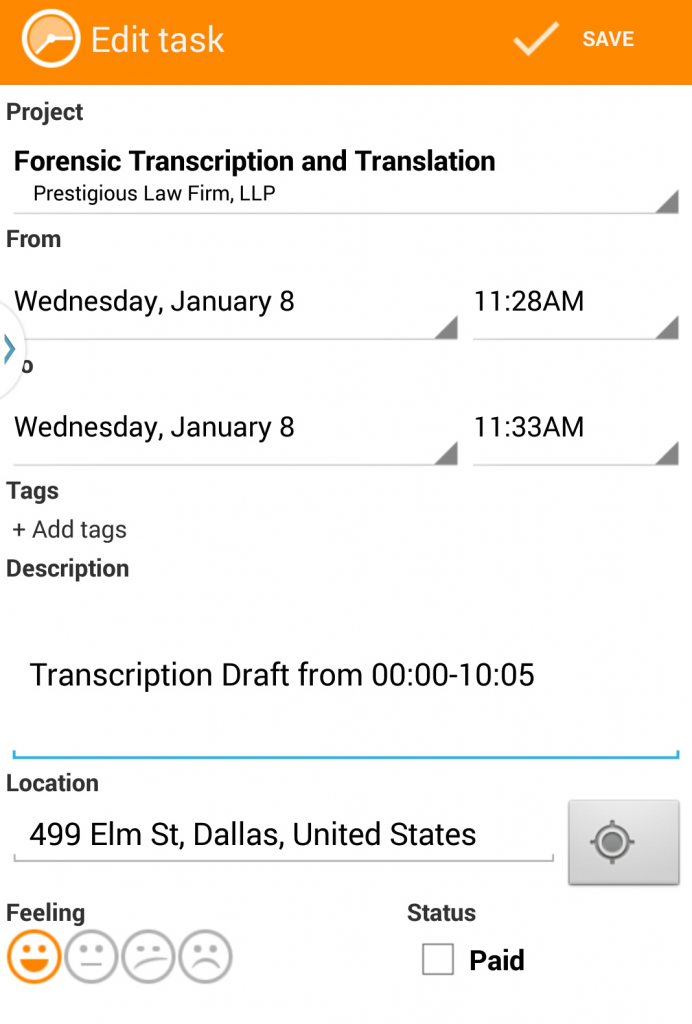Even after seven years of freelancing, I still look for new ways to be more productive during work time. The more efficiently I work, the more I can truly enjoy my time off — instead of thinking about what I still need to get done.
So, here are my top three apps for increasing productivity:
- Expensify (iOS + Android) – During the year-end break, I finished up my bookkeeping for 2013. Although I’m happy that it improved over the previous year, it wasn’t up to the level I want. Ideally, I would like mileage and expense logs to update instantaneously, so I never have to spend time catching up. Finally, Expensify offers a streamlined solution. I can quickly snap a photo of a receipt, categorize it, and specify whether it’s a billable expense, all in the same upload. For business mileage, all I have to do is hit a button at the start of a trip and let the GPS track me. All my data is available from the Expensify website and I can easily export it Excel. Bonus: My CPA suggests that keeping up-to-date logs is the best way to benefit from all possible deductions.
- Timesheet (Android) – Until now, the time trackers I had found just didn’t fit my style. The Printable CEO has good Pomodoro-type printouts, and there are a ton of programs to help you log project times. But I test drove Timesheet on a recent forensic-transcription project (Preciso’s newest service offering, yay!) and it turned out to be the project tracker I was waiting for. It lets me annotate work completed during each time period dedicated to a project. It gives me analysis across a project and allows multiple projects.The widget on my phone makes it easy as pie easy to start and pause tasks. As an added bonus, having the break timer ticking was a nice motivator to get back on task.
- Facebook – Surprised? Well, my suggestion is actually to take Facebook (or your time sink of choice) and uninstall the app from your phone. We all have those sites we like to check in on for one or two or forty minutes when faced with a work task we’d rather not do (see #1, in my case). It’s time to take control and save these sites for a hard-earned, guilt-free break. At minimum, turn off all notifications so you only log in when you’ve decided you have some time for it.
These are my favorite productivity boosters right now. My sister, who works from a home office as a mortgage underwriter, just started using Timesheet and loves it. Do you have a favorite timekeeping app for Apple? Other productivity apps we should know about?


